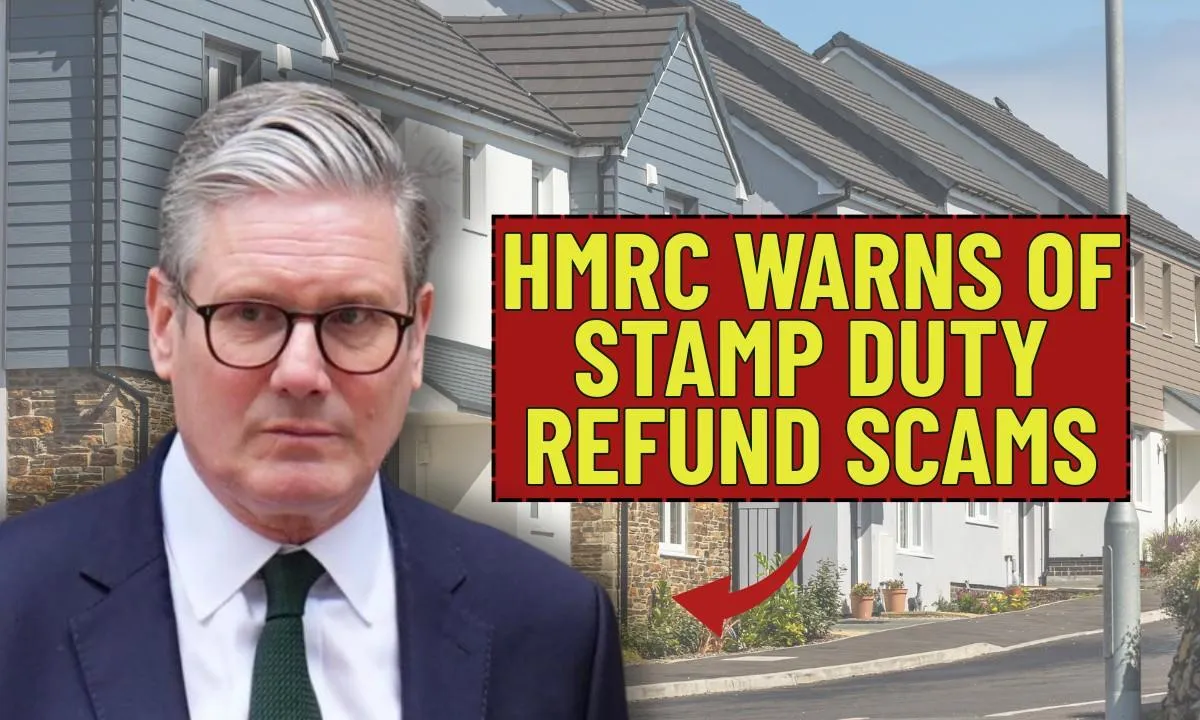The HM Revenue & Customs (HMRC) has issued a serious warning to UK homebuyers in 2025. Fraudsters are increasingly targeting people who recently purchased property, claiming they can help them reclaim overpaid Stamp Duty Land Tax (SDLT). While the idea of getting a refund may sound appealing, these schemes are often fake, designed to steal money or sensitive personal information. HMRC’s alert aims to protect homeowners from falling victim to these scams and highlights the importance of verifying any claims through official government channels.
What is the Stamp Duty Refund Scam?
Fraudsters approach homebuyers claiming they are entitled to a refund on the SDLT they paid when buying a property. They often use persuasive tactics, suggesting that recent renovations, repairs, or overpayments make the buyer eligible for a substantial refund. These scammers can appear professional and convincing, sometimes using official-looking websites, emails, or documents. HMRC warns that most of these claims are false. Genuine refunds exist but are rare, and scammers exploit the complexity of property taxes to make their offers seem legitimate. Homeowners who engage with these companies risk giving away personal data or paying fees for refunds they will never receive.
Why These Scams Are Dangerous
Falling for a fake SDLT refund scheme can have serious consequences. Beyond losing money to upfront fees or fraudulent services, victims may face legal or financial complications. HMRC emphasizes that the responsibility for accurate SDLT filings always lies with the homeowner, even if a third party submits a claim on their behalf. Some scam claims could trigger unnecessary tax investigations, audits, or penalties. By trying to recover money through unverified sources, homebuyers might inadvertently create problems that would not have existed if they had followed official procedures.
How to Protect Yourself from Stamp Duty Scams

Homebuyers can take several steps to safeguard themselves against fraudulent refund claims. The first is always to verify any refund offer directly with HMRC. The government provides clear guidance and online tools to check eligibility for SDLT refunds. Individuals should never rely on unsolicited calls, emails, or messages from companies offering instant refunds. These contacts are almost always suspicious. It is also important to consult only qualified tax advisers or solicitors familiar with UK property taxes. Keeping all property purchase documents safe and organized helps homeowners verify any legitimate claims and provides protection if they are ever contacted by scammers.
HMRC regularly updates advice on how to identify fake SDLT claims, highlighting common red flags such as unexpected contact, requests for bank details, and pressure to pay upfront fees. Awareness and caution are the most effective defenses. By staying informed and relying on official guidance, homebuyers can avoid losing money and prevent unnecessary legal issues.
Why HMRC Is Stepping Up Warnings
HMRC’s 2025 alert comes in response to a growing number of reports from homebuyers targeted by fraudulent SDLT schemes. Fraudsters often prey on first-time buyers, families, and property investors, using misleading information to make claims sound legitimate. The authority wants homeowners to know that genuine stamp duty refunds are very specific and not widely applicable. By issuing clear warnings, HMRC hopes to reduce the number of people falling for these scams and protect taxpayer finances.
In addition to public alerts, HMRC encourages anyone suspicious of a scam to report it immediately. This helps authorities track trends, take action against fraudsters, and prevent others from being victimized. Protecting personal information and understanding the rules around SDLT refunds are key steps every homebuyer should take.
While the idea of a quick Stamp Duty refund can be tempting, UK homeowners need to approach such offers with extreme caution. Most unsolicited claims are scams designed to exploit people’s lack of knowledge about property taxes. HMRC advises homebuyers to rely only on official guidance, verify any potential refunds through the government’s website, and consult qualified professionals when in doubt. Staying alert and informed is the safest way to navigate property taxes and avoid financial loss.

